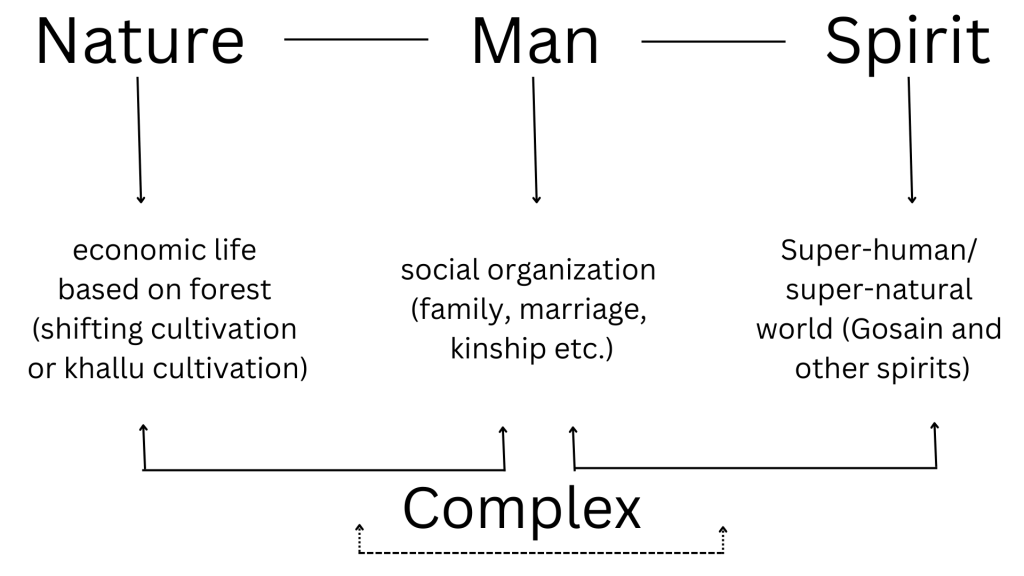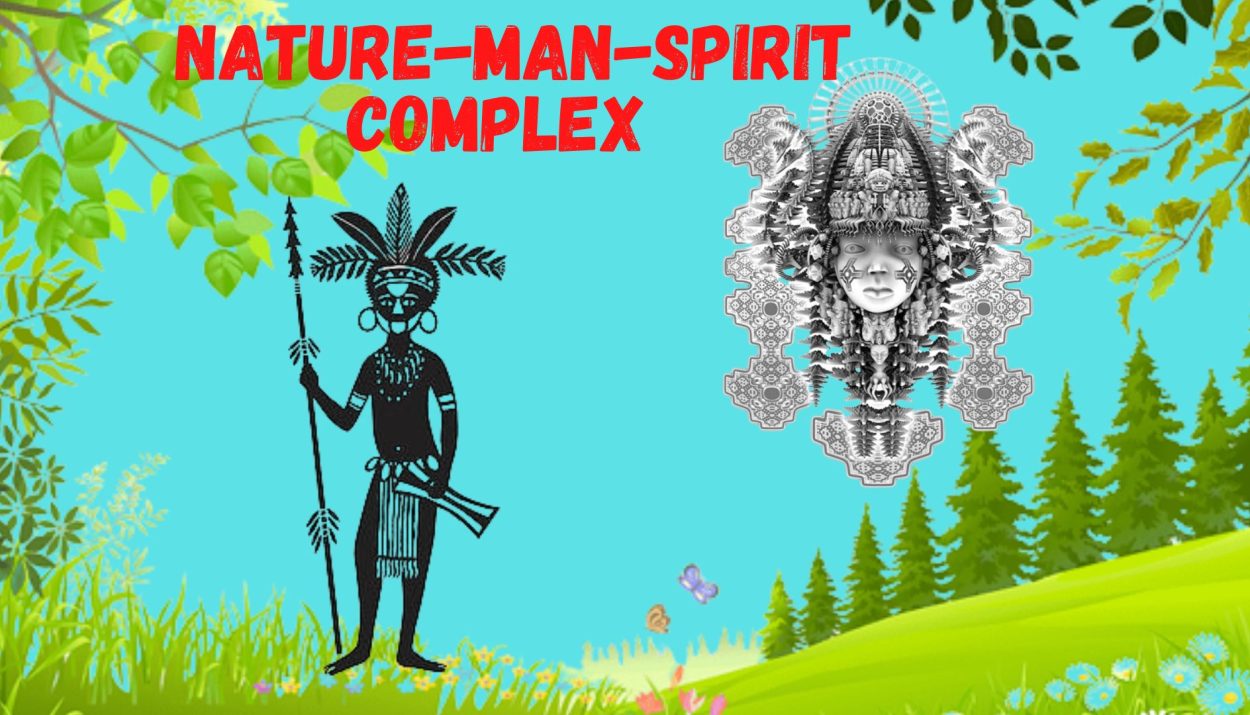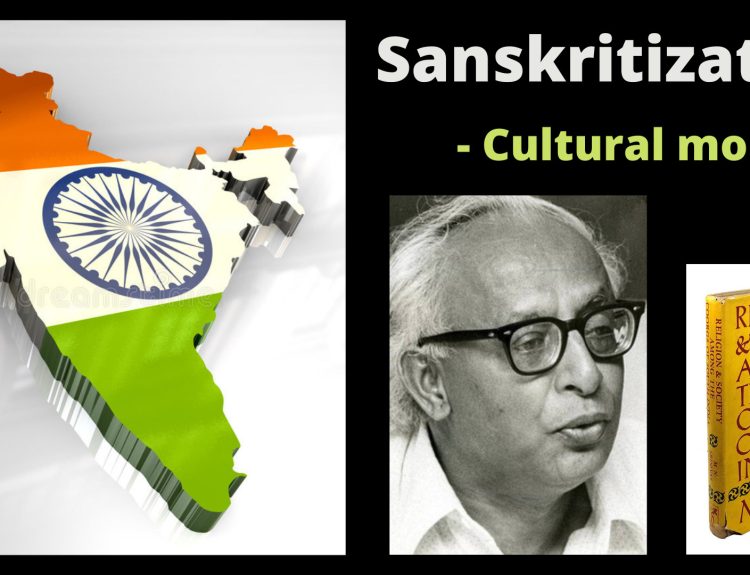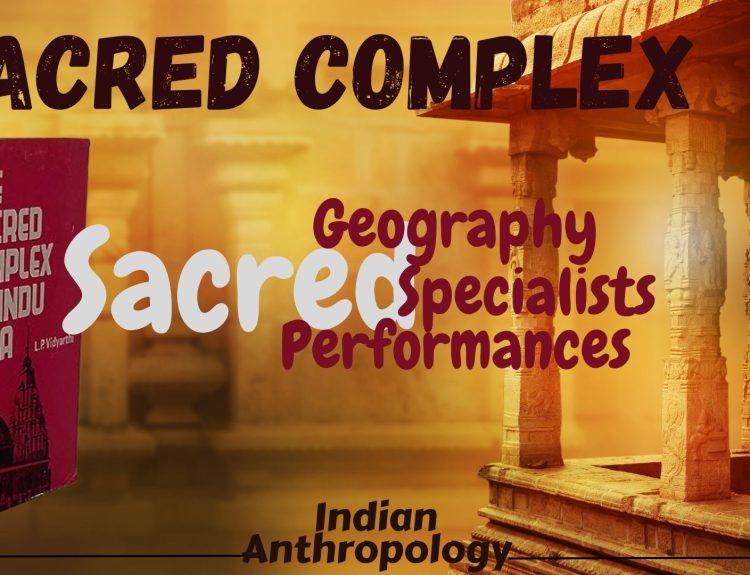The concept of the nature-man-spirit complex explains the interaction between society and the environment. This concept was given by anthropologist L.P. Vidyarthi in his book ‘The Maler: A Study in Nature-Man-Spirit complex’ in 1963 based on his research among the primitive tribe (Maler), inhabitants of Bihar state of India. It is a cultural ecological approach that helps to understand how the groups adopt the local environment and how the environment shapes the culture and societal features.

Culture is the man-made part of the environment. The arrangement between a man and the environment plays an important role in meeting the needs of man in life. Man adapts himself to the environment around him to survive. This adaptation varies from region to region. This is the reason why we have different cultures around the world.
There is a constant link between social organization, environmental conditions and religious complex throughout tribal India.
Work of L. P. Vidyarthi
L.P. Vidyarthi studied Maler (Mal Paharia), a primitive tribe living in the Rangmahal Hills of Bihar, India. He sought to understand how this tribal group interacts with the current ecological conditions and why they reject the development programs of the government. With his studies, he invented a model called the nature-man-spirit complex.
Here nature means the environment, man means the society i.e. marriage, family, kinship, etc. and spirit means supernatural gods and demons. These three parts are interdependent and interconnected with each other.

The economy of the Maler tribe is based on shifting cultivation (known as Khallu in their local dialect). They depend on the forest. They believe in different types of spirits that play an important role in their lives. The behaviour of spirits falls into two categories-
Benevolent spirits– for health, wealth, productivity in agriculture etc.
Malevolent spirits– for sickness, abortions, death and natural calamities.
All the spirits are governed by the presiding spirit- Gosain or Gosaiyyan. Malers perform a variety of rituals for the spirits. Gosain acts as a bridge between supernatural spirits and malers. Thus in this way, nature (shifting cultivation), man (maler people) and spirit (Gosain and others) are in constant interaction and form a complex together.
The malers do not believe the outsiders. The outsiders only understand only one part of the complex (i.e. man or nature or spirit) not the complex as one concept (nature-man-spirit).
Importance of nature-man-spirit complex
This concept helps to understand particular tribes from their point of view (emic perspective) in order to frame better developmental programmes for tribal groups. It has been seen many times that when any development is done in a tribal group, the tribal people there oppose it. The local inhabitants do so because they believe that this will disturb their equilibrium of nature, man and spirit.
This complex shows that development and innovation can significantly negatively impact the life of a Tribal Group without any proper future planning. For tribal acceptance, the government have to address all three parts of the complex without leaving anyone behind. This concept also helps us to understand the resistance to change into great traditions offered by the little tradition.
Here comes the role of anthropologists. They have to understand the emotions of tribal people to bring any kind of developmental programmes. They have to understand this equilibrium in order to get support from the inhabitants. The main motive of any kind of innovation or development in tribal has to bring happiness too.
Many anthropologists use this method to study other tribes as well.
Also, read
How 20MnCr5 steel is different from 16MnCr5 steel?







